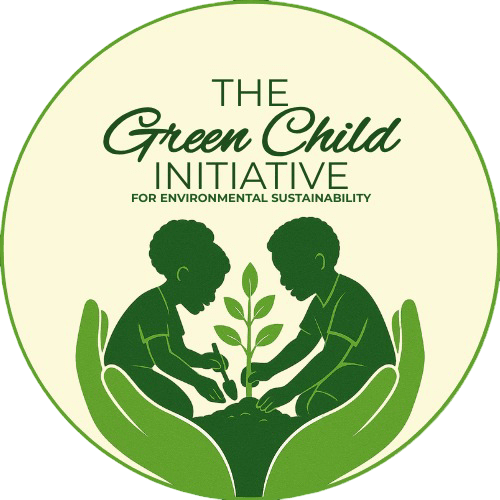The Importance of Nurturing Young Environmentalists
Fostering an environmental consciousness in children is vital for creating a sustainable future. Children possess an innate curiosity and passion for nature, which can serve as a powerful catalyst for developing young eco-leaders. When kids are educated about environmental issues from an early age, they are more likely to form a lifelong commitment to sustainability and conservation. This nurturing process begins at home and also extends to schools and broader communities. Families play a crucial role by engaged discussions about the environment, outdoor activities, and encouraging responsible behavior, such as recycling and composting.
Schools can further enhance this environmental stewardship by integrating eco-friendly curricula that highlight the importance of nature. Educational programs that emphasize climate change, renewable energy, and biodiversity engage children directly. Hands-on activities like gardening, participating in clean-up days, and developing projects that respond to local environmental challenges can empower kids and reinforce the sustainable values they learn. These experiences not only fuel their interest but also instill a sense of agency, allowing them to feel that they can make a difference.
Communities also have an essential role to play in nurturing young environmentalists. Community initiatives that promote ecological awareness and hands-on projects create networks for children to connect with like-minded peers and adult mentors. Involvement in local sustainability projects solidifies children’s sense of belonging and responsibility towards their environment. Engaging young minds in eco-friendly activities not only fosters a responsible attitude but also lays the groundwork for future leaders who will champion environmental causes. By investing in the environmental education and activities of children today, we can cultivate responsible, knowledgeable adults who contribute positively to the health of the planet.
Inspiring Stories of Eco-Projects Led by Kids
Young environmental leaders across the globe are making remarkable strides in promoting sustainability through their innovative eco-projects. One such inspiring story is that of 10-year-old Maya from Toronto, Canada, who initiated a tree planting initiative in her local neighborhood. Motivated by the desire to combat climate change, Maya organized a community event that saw the planting of over 200 trees in a single day. Her project not only enhanced the greenery in her area but also fostered community spirit among residents, who participated in her efforts wholeheartedly. Maya faced setbacks during the planning phase, including obtaining necessary permits and rallying volunteers. However, her tenacity paid off, and she creatively addressed these challenges by collaborating with local environmental organizations for support and guidance.
Another poignant example is that of Liam, a 12-year-old from Cape Town, South Africa. Concerned about the litter problem in his school and surrounding community, Liam founded a recycling program aimed at educating his peers on waste management. What started as a simple initiative quickly gained momentum, with Liam conducting workshops and providing recycling bins around the school. His passion for the environment inspired students and teachers alike, resulting in a significant reduction in waste. The challenges he encountered included resistance from some students, who felt uncomfortable participating. Nevertheless, Liam employed clever strategies, such as gamifying the recycling process, turning it into friendly competition, which successfully engaged his fellow students.
In the UK, 11-year-old Emma launched a community clean-up project in her coastal town. Realizing the impact of plastic pollution on marine life, she rallied friends and neighbors to join her weekend clean-ups. Emma’s initiative galvanized local support, and over several months, they collected hundreds of pounds of trash from beaches and parks. This project not only beautified their environment but also raised awareness about pollution’s effects on wildlife. Emma faced logistical challenges, including lack of funding for supplies. However, she sought sponsorship from local businesses, ensuring the continued success of her efforts.
How Kids Are Motivating Their Peers to Care for the Planet
In recent years, young environmental leaders have emerged as powerful agents of change, inspiring their peers to take action for the planet. Through a variety of innovative methods, children are catalyzing a positive shift in community attitudes towards ecological issues. One significant way they do this is through educational campaigns. By organizing awareness programs in schools, these young advocates effectively communicate the importance of environmental stewardship, using relatable language and engaging visuals that resonate with their classmates. This kind of grassroots outreach often leads to heightened awareness among students, encouraging them to adopt eco-friendly habits.
Peer-to-peer mentoring also plays a crucial role in motivating children to care for the environment. Older students often lead by example, sharing their experiences in recycling, conservation, and sustainable practices with younger classmates. Such mentorship creates a culture of knowledge-sharing, where environmental values are communicated effectively. The impact of this relationship extends beyond the individual; it fosters a collective responsibility towards Earth, as students feel empowered to influence their peers positively.
Involvement in school clubs dedicated to environmental causes is another effective strategy. Green clubs provide a platform for students to collaborate on projects ranging from tree planting to waste reduction initiatives. These clubs often host community events such as clean-up drives and educational fairs that draw in families and local organizations, amplifying the reach of their message. The ripple effect of their efforts can be seen as parents become more engaged in environmental activities, proving that when children are passionate about a cause, their enthusiasm inspires those around them.
Furthermore, by showcasing their initiatives on social media, young environmentalists can connect with a broader audience, promoting activism well beyond the classroom. Through these diverse avenues, kids are not only motivating their peers but also nurturing a culture of collective environmental responsibility that encompasses families and local communities.
Creating an Environment that Fosters Eco-Leaders
Fostering young environmental leaders requires collaborative efforts from families, educators, and communities to create an environment that nurtures their passion for sustainability. One effective method is to introduce eco-friendly activities in schools, such as recycling programs, gardening clubs, and sustainability-focused projects. These initiatives encourage students to engage actively with environmental concepts, allowing them to develop a sense of ownership regarding eco-friendly practices. Integrating lessons on biodiversity, climate change, and conservation into the curriculum can also provide students with the knowledge they need to become advocates for change.
Access to nature plays a pivotal role in cultivating environmental awareness. Families and communities can organize outings to parks, nature reserves, or farms to provide children with firsthand experiences of the environment. Such interactions not only deepen their understanding of ecosystems but also inspire a genuine appreciation for the natural world. Schools can create partnerships with local parks or environmental organizations to facilitate field trips or workshops, enhancing students’ connections with their surroundings.
Encouraging volunteerism in community projects is another effective approach to empowering young environmental leaders. Participation in local clean-ups, tree-planting events, or wildlife conservation initiatives fosters teamwork and civic responsibility. These opportunities allow children to see the positive impact of their efforts while contributing to their communities. Additionally, when children lead or participate in their initiatives, it instills a sense of confidence and pride that is crucial for developing future eco-leaders.
Providing platforms for children to share their ideas is essential for fostering a supportive environment. Schools, community centers, and online forums can facilitate discussions, showcasing young leaders’ endeavors. Recognizing and celebrating children’s contributions further encourages their commitment to environmental stewardship. By creating a safe space for expression, we can empower the next generation to advocate for sustainable practices and become influential representatives for our planet.




